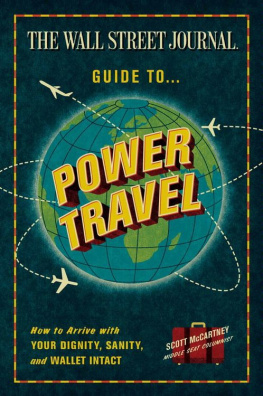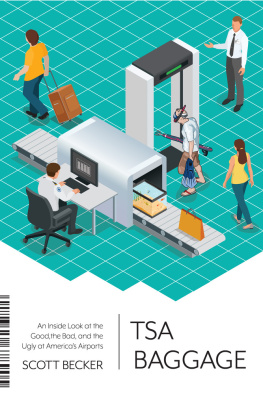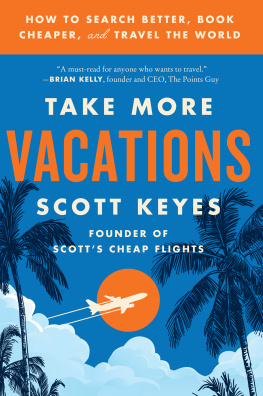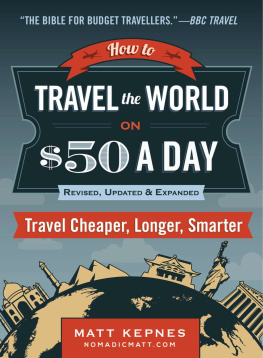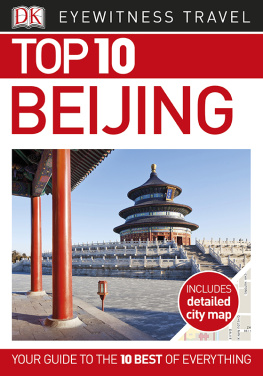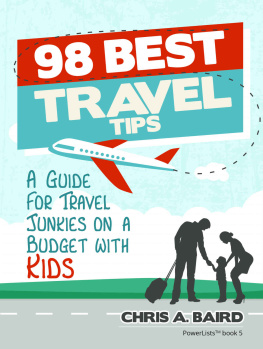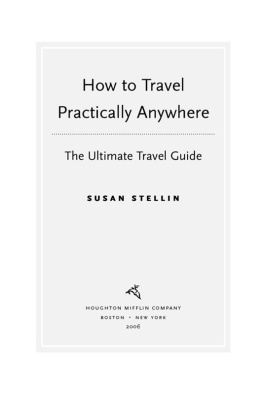SCOTT McCARTNEY is the author of three books. A veteran journalist and licensed private pilot, he has been explaining airlines and travel to readers of The Wall Street Journal for more than a decade. He lives in Dallas, Texas.
Visit www.AuthorTracker.com for exclusive information on your favorite HarperCollins author.
HarperCollins Publishers (Australia) Pty. Ltd.
HarperCollins Publishers Ltd.
P.O. Box 1
HarperCollins Publishers Ltd.
HarperCollins Publishers Inc.
Will Travel Ever Get Better?
I often joke that if airlines ever figured out a way to run their business welldelighting customers with good value, an easy-to-use product, dependable service, friendly employees, clean and comfortable equipmentthen Id be out of a job as a writer and travelers advocate. But as one of my colleagues likes to say, this industry, from a reporters perspective, just keeps giving and giving.
Air travel seemingly gets worse and worse. We endure busts and booms with airlines, neither particularly enjoyable for passengers. In the late 1990s, when the economy was booming, airlines jacked up prices, angering customers. Service deteriorated, thanks to air-traffic congestion and delays and labor feuds between pilots and management that left customers sitting on canceled or delayed flights. Then the economy softened and the terrorist attacks of 2001 sent the airline industry into a tailspin. Airplanes were grounded, employees laid off, and service cut back so much that air travel became more and more unpleasant. Food was taken off flights and penalties were increased and imposed on passengers. At one point, half the entire U.S. industry was operating under protection of federal bankruptcy courts. What an industry!
Then, just as airlines emerged from bankruptcy reorganization and started making money again, oil prices shot up. Airlines slashed costs, changed how they operate to get more efficient, and thought they had figured out a way to be profitable even when oil cost $70 a barrel in 2007. (Some Wall Street analysts had predicted as oil climbed from the $30s and $40s that the industry would be dead if oil prices ever reached $60 a barrel.) Then oil prices doubled again and the airline industry was left reeling. Then oil prices come crashing down, but so does the global economy. Airlines bounce from one crisis to the next. Is there any other business so sensitive to economic changes and global politics? Possibly not.
Will the industry ever find the stability, profitability, and ability to provide good service? Thats unlikely, given the basic structure of the business. First, no other industry is so competitive on price. Consumers can comparison shop with a couple of clicks, seeing all the prices for the industry at any given moment. Imagine if your computer could compare prices of groceries or automobiles or televisions for you, showing the cheapest price at every auto dealer in town, for example. Pricing displays, whether they are in front of travel agents or in front of average travelers, are set up to list the cheapest prices first. Woe be the airline that doesnt match the cheapest priceor so airlines say. If you try to hold out for a higher price, you often end up with nothingno sale and an empty seat.
On top of that pricing pressure, airlines are expensive to run, with high capital costs for airplanes, airport terminals, computing heft, and the labor costs of skilled mechanics and pilots. Its a business that still operates with lots of workers, many of them highly trained and highly paid. Its a cyclical business, tightly tied to the ups and downs of the broad economy, and is highly seasonal and even variable day by day. The result is that you have an industry with high costs and commodity pricing, yielding a low-margin business. And thats when things are good for airlines.
The domestic United States skies offer the largest air-travel market in the world, and it is also the most competitive in the world. Whenever one airline starts making money on a route, a competitor can easily move an airplane in to try and reap rewards as well. Airplanes are the factories and office buildings of the aviation industry, but unlike factories and office buildings they are mobile. That makes the business all the more competitive. On top of that, its easy to start an airline, and start-ups have the advantage of low costsemployees with no seniority, no pension obligations, no aircraft debt, and, if you lease new planes, little maintenance obligations. History has shown that anytime an airline can find a stable, profitable market base, a new entrant is likely to appear on the scene and start chipping away. Airlines do well when they can keep the supply of seats in line with demand so that they can charge airfares high enough to cover their costs. But whenever that happens, new capacity comes in, prices get slashed, and profits become elusive again.
POWER BENEFITS
In the short run, the intense competition is good for consumers. We all enjoy a good fare war, and the price of an airline ticket has become an incredible bargain. Between 1978, the year the airline industry was deregulated, and 2007, the price of the cost to fly one mile domestically rose 53 per cent, not adjusting for inflation. Over the same period, a gallon of milk increased in price by 154 percent, according to the U.S. Bureau of Labor Statistics; the average selling price of a new car ballooned 345 percent, according to the National Automobile Dealers Association, and the average cost of a year at a public university skyrocketed 799 percent, according to the College Board. If you adjust for inflation, the average airline ticket costs half what it did in 1978. Cheap and plentiful air service has changed the way we live, allowing frequent vacations or fun trips, allowing us to live far from parents or children and still get together and maintain family ties, allowing us to work or attend school farther from home than our parents or grandparents may have ventured. The airways are the interstate highways of our modern lives.
Despite recent years with hefty price increases, air travel is still a decent bargain. In the long run, consumers need airlines to be profitable. Consumers want to see airlines invest in new airplanes, better seats, and more service on the ground and in the air. Consumers deserve friendly and helpful airline employees, not surly traffic cops angry about the latest layoffs or management bonuses. Consumers need dependable service, whether that means delivering your luggage back to you without damage or delay, or just getting the flight to New York as promised. We dont get that from an industry always seeming to circle the drain.
The turbulence in the skies means we should demand better from both our government and our airlines. Consumers need important protections when traveling, and yet Congress and several presidential administrations have done little. We dont have any sort of Passengers Bill of Rights. Canada, the European Union, and other govern ments have written some basic protections into law. Havent U.S. travelers suffered enough to earn some relief? We dont have a modern air-traffic-control system and we, as travelers, should demand one.

